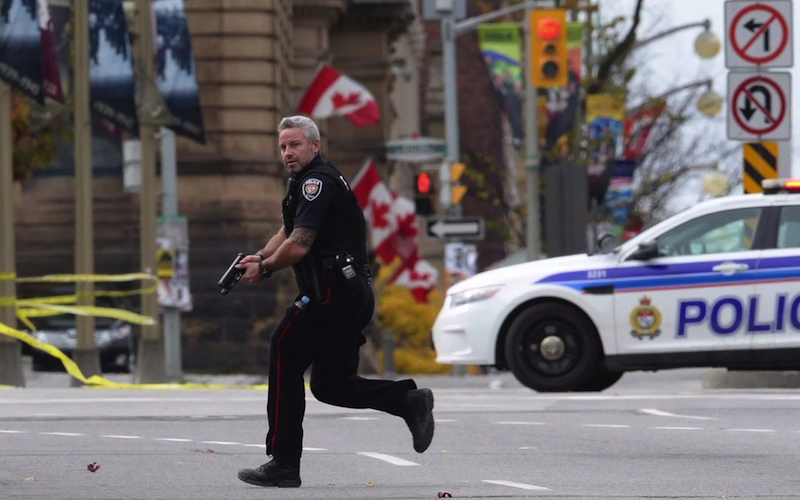
Terrorism, Ottawa, and the New Normal
As shocked as many Canadians, and much of the world, are about the shootings that occurred in Ottawa yesterday, they really shouldn’t be. Given the call to arms that al Qaeda and the Islamic State have made to their devotees, the rise of acts of home grown terrorism, and the propensity of lone wolf actors to basically act at will, we must acknowledge that such acts are occurring, and will occur, with greater frequency in the future.
It is actually surprising that such acts of terror do not occur with greater frequency, in large part a credit to the work of the intelligence agencies. Much goes on behind the scenes that average citizens will never know about; hundreds of attacks in the planning stages have been foiled as a result. That said, look at the toll these individual actions take on our national psyches.
In the case of Ottawa, the entire nation has been gripped with fear. But why? Similar acts have occurred in countries in every part of the globe, such as the U.S., Sweden, and Australia. Such a brazen act has never before occurred in Canada, but, to me, that is a miracle.
Think about it. Think about how easy it was for the gunman to gain access to Parliament. Obviously, there is a security protocol there, but if it were more stringent, he never would have been able to successfully enter the facility.
More to the point, the security ‘protocol’ is almost completely absent in most of the non-governmental infrastructure of the developed world. Sure — if you go to a corporate headquarters in New York or London, your bag may be screened, and you may be asked to walk through a body scanner — but this is rare. I have been to many office buildings where my bag was checked (by an unarmed guard), but my body was never searched. What is the point, I would ask myself.
Apart from countries where there is an existing threat, or there has already been an attack, it is extremely rare to find any visible security protocol in a shopping mall, movie theater, or restaurant. When I lived in Manila, bags were searched in virtually every one of the examples noted above — but only cursory body searches were performed, if at all. Once again, what’s the point of just going through the motions? The ‘impression’ that there is a visible security protocol gives the average citizen in such places a sense of comfort — but it really shouldn’t.
Imagine what would happen if a single gunman opened fire in any of the unprotected, unmonitored malls in the United States. I would imagine most people would then stop going to the mall. What kind of economic impact would that have in the short-term? Fairly substantial, I would think. You may note, quite rightly, that the theater shooting in Aurora, Colorado did not stop people from going to the movies, but I would argue, that is because it didn’t happen again. If it did, I suspect people would stop going to movie theaters. Could it easily happen again? Sure.
The simple point I am making is that these attacks will become more frequent, and, over time, they will have an economic impact on the countries in which they occur, for the simple reason that all one needs to create terror is a gun. Given how prevalent guns are in the U.S. and elsewhere, it is probably just a matter of time until something terrible happens, again. Al Qaeda and the Islamic State know this, as do their devotees.
While governments have already done so, now would be a good time for businesses to ramp up their security protocols, in recognition of the evolving new terrorism/lone wolf normal, and in a meaningful way. Businesses are traditionally resistant to spending money on security, but being proactive is likely to have a positive impact in terms of deterrence. Right now, it is a free-for-all, in favor of those who wish to generate fear and create terror among the general populace. Hopefully, Ottawa will prove to be a useful wake-up call in that regard. Neither Columbine, Aurora, or Newtown were.
This article was originally posted in The Huffington Post.

